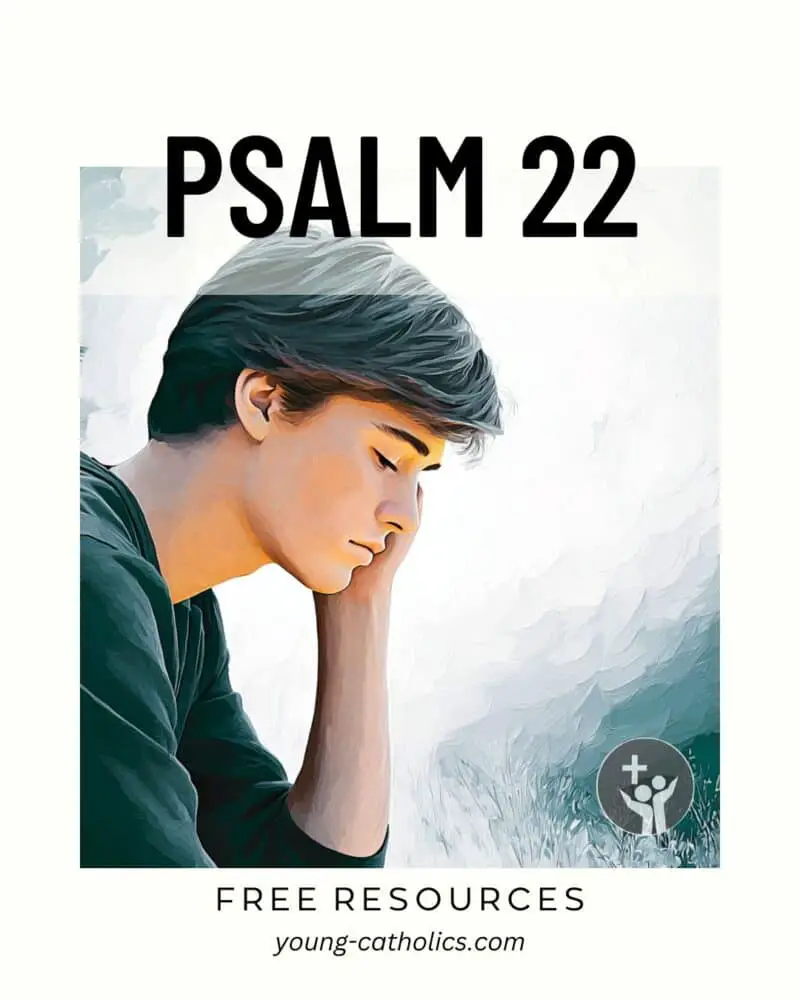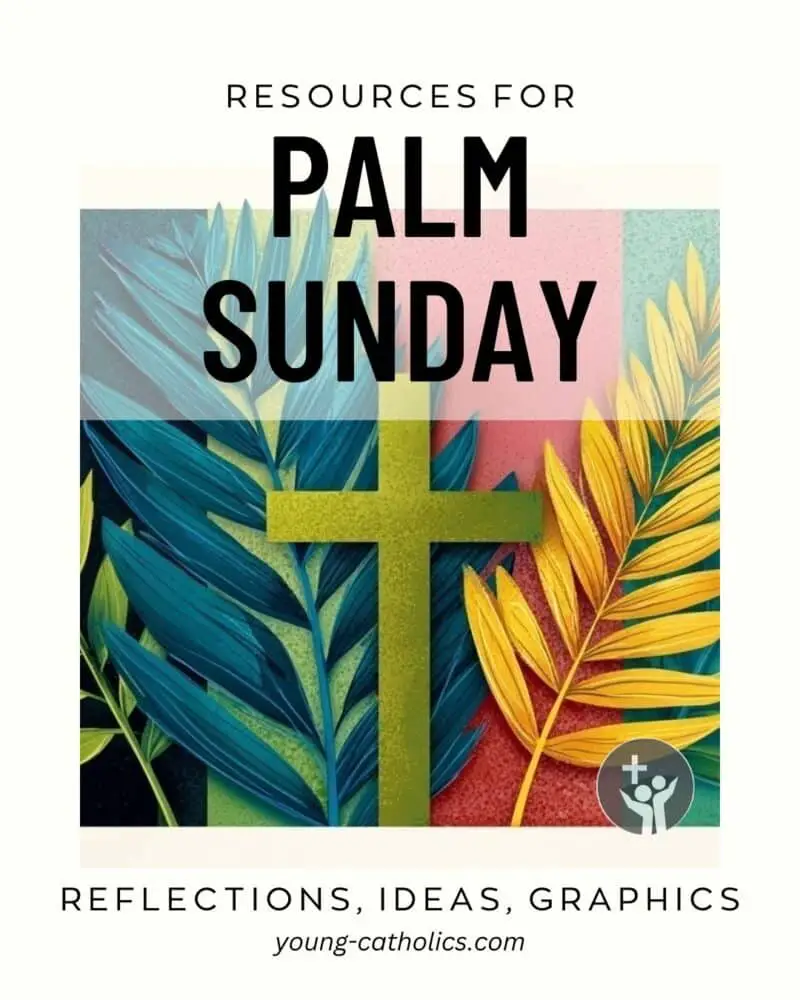Psalm 22
Where Is God?

Psalm 22 is one of the most powerful prayers in the Bible. It begins with words that Jesus prayed on the cross: “My God, my God, why have you abandoned me?” This psalm expresses deep suffering but also great trust in God. It speaks to anyone who feels alone, afraid, or overwhelmed.
The psalm starts with a cry for help. The writer feels far from God and surrounded by enemies. The suffering is intense, both physically and emotionally. Yet, even in this pain, the psalmist remembers God’s faithfulness in the past. This gives hope that God will answer.
As the psalm continues, it shifts from sorrow to trust. The writer believes that God will rescue and bring healing. This trust is not based on feelings but on the truth that God is always faithful. The psalm ends with praise and a vision of hope for all people.
Psalm 22 is a reminder that suffering is not the end. Even in the darkest times, we can cry out to God and trust that He hears us. Jesus Himself prayed this psalm, showing us that God understands our struggles and will never leave us. It is a prayer of honesty, trust, and hope.
Understanding the Context of Psalm 22
Psalm 22 is part of the first section of the Book of Psalms. The Psalms are divided into five sections, and this psalm is in the first, which includes Psalms 1–41. These psalms often focus on personal struggles, prayer, and trust in God.
Tradition says King David wrote many of the psalms, including Psalm 22. David was a shepherd, a warrior, and later a king of Israel. He faced many trials in his life, and his psalms reflect his prayers during times of joy, sorrow, and need.
Psalm 22 is known as a lament. A lament is a prayer of sadness or distress. It begins with a cry for help but ends with hope and trust. The psalm reflects David’s deep relationship with God, where he brings his pain and faith together.
For Catholics, Psalm 22 also connects to Jesus. On the cross, Jesus prayed the first line of this psalm. His prayer shows how this psalm points to His suffering and how He trusted the Father even in great pain.
From Suffering to Trust in God
One theme in this psalm is suffering. The writer feels abandoned by God and attacked by enemies. This speaks to the human experience of pain and fear. Catholics see this as a reminder to bring our struggles to God in prayer, even when it feels like He is far away.
Another theme is trust. Despite the pain, the psalmist remembers how God has helped His people in the past. This gives hope that God will act again. Catholics are encouraged to trust in God’s plan, knowing He is always faithful.
The psalm also points to Jesus. Catholics see it as a prophecy of His suffering on the cross. Details in the psalm, like people mocking and dividing clothing, match what happened during Jesus’ crucifixion. This shows that Jesus fulfills the Scriptures.
Finally, the psalm ends with praise. The writer believes that God will rescue and that all people will worship Him. This points to the hope of salvation, which Catholics believe is offered to everyone through Jesus. Suffering leads to trust, and trust leads to joy.
A Prayer for Hard Times
This psalm is still important today. Many people feel pain, fear, or loneliness at some point in their lives. The words of this prayer help us bring those feelings to God. It shows that it is okay to be honest with Him about our struggles.
The psalm also reminds us to trust God, even when life is hard. It encourages us to look back on the ways He has helped us in the past. This can give us hope and strength to face our troubles now.
For Catholics, this psalm connects us to Jesus. When we suffer, we can remember how He suffered for us. His prayer of trust on the cross teaches us to rely on God in our own pain.
This prayer also ends with hope. It shows that suffering does not last forever. God will answer, and His plan is always good. This gives us comfort and helps us keep our faith, no matter what we face.
A Prayer Based on Psalm 22
Never Alone in the Dark
Lord, sometimes I feel far from you.
It seems like you do not hear me when I call.
The noise of life is loud, and I feel lost in it.
Please remind me that you are still here.
I see trouble around me and it scares me.
People can be unkind, and my problems feel big.
Help me to remember that you are my strength.
Give me courage to keep going.
You have helped others before me.
I have read about your care in hard times.
Let me trust that you will do the same for me.
Show me that your love never stops.
I will tell others how good you are.
Even when I am hurting, I will praise you.
You are my hope when the world feels dark.
Thank you for staying with me always.
Trust in God through Suffering
Psalm 22 appears several times in the Roman Catholic lectionary. It is used in both weekday and Sunday Mass readings. Parts of it are prayed during Holy Week, when we remember the passion of Jesus. The psalm begins with a cry of distress, but it also shows great trust in God.
This psalm is often read or sung in parts. The verses of sorrow speak of feeling far from God, yet the psalmist keeps calling out. Later verses express hope and confidence that God will rescue and save. This mix of pain and trust makes the psalm very powerful in prayer.
When the Church includes Psalm 22 in the readings, it invites us to see how God stays close even in times of suffering. It reminds us that Jesus himself prayed the first words of this psalm on the cross. Through it, we are encouraged to hold onto faith and trust in God’s help.

Palm Sunday (Passion Sunday)
Hope in the Midst of Pain
Psalm 22:8-9, 17-18, 19-20, 23-24 speaks from a place of deep suffering. The writer is mocked, surrounded by enemies, and treated with cruelty. He feels abandoned, yet he keeps calling out to God for help. Even in pain, he knows that God is the only one who can save him.
The psalm shifts from sorrow to trust. The writer promises to tell others about God’s greatness and urges everyone to give praise. It reminds us that faith can stay alive even when life is hard. God’s presence is reason to keep going and to keep giving him glory.

5th Sunday of Easter Year B
God’s Praise for All Generations
Psalm 22:26-27, 28, 30, 31-32 is a song of thanks and joy. The writer promises to keep his word to God and to praise Him in front of others. He speaks of God providing for the poor and giving life to those who seek Him. Everyone is invited to join in worship, and all nations are called to turn to the Lord.
The vision in this psalm reaches far into the future. It tells how every generation will hear of God’s goodness. Even those yet to be born will be told about His justice and care. It shows that praising God is not only for one person or time, but for all people, in every age, across the whole earth.
At Weekday Masses
- Tuesday of the 4th Week in Ordinary Time I – Psalm 22:26b-27, 28 and 30, 31-32: Universal Praise for the Lord
- Tuesday of the 31st Week in Ordinary Time II – Psalm 22:26b-27, 28-30ab, 30e, 31-32: I Will Praise You, Lord, Among Your People
Resources
Social Media Graphics and Bulletin Artwork
Holding on in the Silence

Bring the words of Psalm 22 to life with this moving image, perfect for connecting the message of trust in God through trials. This artwork can be used in parish bulletins, newsletters, or prayer resources to inspire reflection.
Download it today to share a visual reminder that even in moments of silence and struggle, God remains near.
Paid subscribers may download a large copy this digital artwork (without watermarks) free of charge by clicking here. You must be logged in as a paid subscriber to access the file.
Only current paid subscribers have the rights to use the artwork.
If you would like this image to be made available as a specific product (card, poster, mug, etc.) or as an extra high resolution image for personal use just post a comment about what you want and we will create a link to our online store for you.
Questions and Answers about Psalm 22
Why does Psalm 22 start with “My God, my God, why have you abandoned me?
This line expresses deep pain and a feeling of being far from God. It shows that the writer is honest about his struggles. Catholics also see it as a prayer that Jesus used on the cross. It reminds us that Jesus understands our suffering and prays with us in our pain.
How does Psalm 22 relate to Jesus?
Catholics believe this psalm points to Jesus’ crucifixion. Many details, like being mocked and having His clothes divided, are fulfilled in the Passion of Christ. When Jesus prayed the first line on the cross, He connected His suffering to this psalm.
Why does the psalm end with praise?
The writer trusts that God will answer his prayer. He believes that suffering will end and that all people will praise God. This reminds Catholics that there is hope after hard times and that God always works for our good.
Can I pray Psalm 22 when I feel sad or afraid?
Yes, this psalm is a good prayer for times of trouble. It helps us bring our feelings to God and trust in Him. It also reminds us that Jesus prayed these words, so we are never alone in our struggles.
What is the main message of Psalm 22?
The psalm shows that it is okay to cry out to God in hard times. It teaches us to trust in Him, even when we don’t feel His presence. It also points to Jesus and the hope of salvation for everyone.
A Cry for Help and a Song of Trust
Psalm 22 is a prayer that begins with deep sadness and ends with hope. It starts with the words, “My God, my God, why have you abandoned me?” The writer feels alone and overwhelmed by enemies. He describes his suffering in vivid detail, showing both physical and emotional pain.
Despite the sorrow, the psalmist remembers that God has always helped His people. This memory gives him hope that God will hear him and act again. Trust replaces fear as the psalm moves toward confidence in God’s faithfulness.
For Catholics, Psalm 22 also points to Jesus. He prayed the first line of this psalm on the cross, connecting His suffering to the writer’s pain. Details in the psalm, like people mocking and dividing clothing, are fulfilled in Jesus’ crucifixion.
The psalm ends with praise and hope. The writer believes that God will save him and that people everywhere will worship the Lord. It reminds us that suffering does not last forever and that God always brings hope and joy in the end.
Your Turn
Take some time today to read Psalm 22. Think about how it speaks to your own life. Are there moments when you have felt far from God? How does this psalm help you see hope in hard times?
Share your thoughts in the comment section below. Tell us what this psalm means to you and how it connects to your faith. Your reflections might encourage someone else to pray this psalm and find comfort in its words.




Leave a Reply